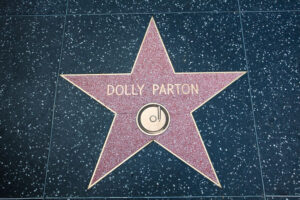Written by Haley Boyce

By this point, your craft is not just a thing you study but something that is part of your essence. When someone describes you to a friend, one of the first things they mention is your love for storytelling. When they read your writing, they become part of it as the lines of the real world are blurred by sensory details of the fictional world that just one, two, even four years ago was kept only in your imagination. When people speak of you they say, “Oh, them? They’re a writer and an academic. You should really read their stuff. It’ll blow you away.”
You’re reading this because you love two things: Words and academics.
We’re willing to bet you have a philosophy on lifelong learning and a strong opinion about the Oxford comma. You see the value in research and sharing knowledge. That’s who you are and why you’re seeking out universities that offer creative writing PhDs.
By earning a creative writing doctoral degree, you are fulfilling your innate need as an artist to create through storytelling while elevating your professional opportunities in academia. If your parents always told you to become a doctor, just wait until you show them what you’re about to do with next few years of your life.
Creative Writing Doctoral Degrees are Purpose-Built for Careers in Academia
 When a lot of people hear “academics” they think of school. Nitpicky teachers, sweaty palms and bouncing knees during a test. Rulers and homework and giant blocks of highlighted words in a textbook. But when you hear “academics”, your mind goes to thoughts of intelligent debates over structure and what it means to truly read a text.
When a lot of people hear “academics” they think of school. Nitpicky teachers, sweaty palms and bouncing knees during a test. Rulers and homework and giant blocks of highlighted words in a textbook. But when you hear “academics”, your mind goes to thoughts of intelligent debates over structure and what it means to truly read a text.
A creative writing doctoral degree is all about narrowing your writing focus down to your preferred genre. As a creative writing doctoral candidate, you will produce a complete manuscript, play, screenplay, or any other writing project you choose to work on. Additionally, you will have opportunities to work on university publications, participate in literary events and festivals, teach as an assistant or adjunct professor, and work in very small cohorts with well-respected writers as your mentors.
After you finish your two or three years as a doctoral candidate, you will have your pick of career opportunities – as long as that pick is a tenure track at a college or university.
Applying to a Competitive Creative Writing PhD Program is a Study in Fortitude
As a scholar, you know that the application process can be arduous. At no such time is that truer than as a prospective candidate for a creative writing doctoral degree.
Doctorate programs are extremely selective with some schools admitting just two or three applicants out of hundreds per genre.
Standard materials to have prepared for the application process will include a resume, at least three letters of reference, and a statement of purpose explaining exactly why a PhD in creative writing needs to be in your future. Of course, you’ll need transcripts from all graduate and undergraduate coursework you’ve completed. If you don’t have copies at the ready, this can take a little longer than expected since you’re at the mercy of each institution you attended.
As you’d expect, you’ll also need to supply plenty of samples of your creative writing work. Schools will differ in what they expect with your application, but plan to share approximately 25 pages of fiction or nonfiction work. Or if your focus is poetry, have 10 -12 pages at the ready. Schools may also ask for a sample of scholarly critical work.
Some schools will also have you complete a Diversity, Inclusion, and Access Statement. This is optional, but its purpose is beneficial to all applicants. Schools that ask for this are doing so in order to create an environment where everyone is comfortable. If you choose to submit a Diversity, Inclusion, and Access Statement with your application, write a one-page statement expressing how your perspective lends itself to a diverse learning atmosphere.
Your Creative Writing Doctoral Dissertation Relies on the Skill and Discipline You’ve Already Developed
 It may be a decade or more of haunting the lecture halls and libraries of universities, at first as an eager undergrad, and then as a graduate student and then a doctoral candidate. It all comes together in the final piece of your formal education when you propose, write, and present your doctoral dissertation. No pressure.
It may be a decade or more of haunting the lecture halls and libraries of universities, at first as an eager undergrad, and then as a graduate student and then a doctoral candidate. It all comes together in the final piece of your formal education when you propose, write, and present your doctoral dissertation. No pressure.
Your dissertation is a personal project and labor of love that you will be working on for the duration of your doctoral program, quite literally for years. In its final presentation, it could be a manuscript, a play, a novella, or even a screenplay. Depending on your program, the only requirement may be the one that all doctoral programs in creative writing will expect:
A publish-ready work that contributes something unique and significant to the field.
The topic may come to you easily, perhaps it’s something you’ve already been chewing on in your quite hours for many years. It may come through slow evolution, emerging only as you chip away at the more prosaic and uninspired elements. It may only crystalize after many thoughtful discussions with professors and colleagues, or it may have already been known to you in some form long before you ever thought you’d need it for anything other than your own internal dialogue. In any case, it will be something deeply meaningful to you.
The good news is that, aside from selecting the topic itself, the hardest part about a dissertation for most doctoral candidates will be the one thing that comes very naturally to you – writing. The best advice anyone can offer is the same advice you’ve been following as a matter of course since you first decided to become a writer: write every day. Making your dissertation a daily exercise will give you a chance to not only stay familiar with your topic and the thought process that led you to it, but it will also help you strike your chisel with gentler and gentler precision, allowing the definition of what you are trying to create reveal itself to you.
Fellowships Offer a Chance at a Fully-Funded PhD in Creative Writing
Because PhD programs in creative writing exist to prepare future scholars and academics, there’s a surprising number of options that won’t cost you anything monetarily. Instead, they represent a gentleperson’s trade, where you put your talent, integrity, commitment, brainpower, and time on the table in exchange for the finest education in the literary arts – an education that not even money can buy.
If you’re planning on applying to a fully funded creative writing doctoral program, you can expect complete funding for a select number of years, to be divvied at each school’s discretion. For example, some schools will guarantee funding for the first three years of academic studies, and then two more years through teaching assistantship.
It is a good idea to become knowledgeable about the different fellowships available to you prior to the application process as not all fellowships are created equal. The term “fully funded” generally means that tuition, housing, and health insurance are all covered.
The Doctor of Fine (DFA) Arts in Creative Writing is Strictly an Honorary Degree
To be sure, not all “doctorates” carry the same weight that a creative writing PhD does. The Doctor of Fine Arts degree only exist as something that is granted as a symbol of honor and nothing more.
A Doctor of Fine Arts is honorary in that the school awarding the degree wishes to commend the recipient for their contribution to the arts. It’s granted in recognition of artistic achievement, not academic achievement.
It’s an Honor to Hold a DFA… But That’s About All It Is
 You know how every May and June we see celebrities in the news being awarded with an honorary doctorate from one school or another? And you know how sometimes it’s interesting anecdotal stuff to fill the awkward silence on a first date that isn’t going well, and other times it makes you pause and ask why you have to work so hard – and pay so much – for something that is being given away?
You know how every May and June we see celebrities in the news being awarded with an honorary doctorate from one school or another? And you know how sometimes it’s interesting anecdotal stuff to fill the awkward silence on a first date that isn’t going well, and other times it makes you pause and ask why you have to work so hard – and pay so much – for something that is being given away?
At the end of the day, those honorary degrees are being awarded with good reason, but it’s not the same reason you’re earning a PhD, of course. Most schools award honorary doctorates to people who have dedicated their lives to bettering the world in some way.
Meryl Streep: Well clearly, if there is one person who is suffering for an award, it’s Meryl. Poor thing needs some attention, don’t you think? She graduated from Yale in 1975 and was later awarded an honorary Doctor of Fine Arts from her alma mater in 1983. She also has honorary degrees from Dartmouth University, Princeton University, Harvard University, and Indiana University.
Celine Dion: Celine’s heart will most certainly go on in dual-doctorate hall of fame. Her first, a Doctor of Music, was awarded by Laval University in Quebec. A subsequent Doctor of Music was given to her by Berklee School of Music alongside Pharrell Williams and Chad Hugo of The Neptunes.
Oprah Winfrey: A recipient of a Doctor of Fine Arts degree from Princeton University, a Doctor of Humane Letters degree from Duke University, and a Doctor of Laws degree from Harvard University. Internationally, she was awarded an honorary doctorate degree from the University of the Free State in South Africa for her services to education there.
Robert De Niro: This one’s a doozy, you guys. While receiving an honorary Doctor of Fine Arts at Bates College, De Niro gave a commencement speech to graduates. He told them that he made the right choice and saved money by not going to college. (Know your audience, Buddy.) However, he did give this bit of sage advice: “If you’re an actor, always be true to your character . . . If you’re not an actor, have character and always be true to yourself.”
Dolly Parton: In a rare move for the University of Tennessee at Knoxville, the even rarer gem, Queen Dolly, was awarded an honorary Doctorate of Humane and Musical Letters – only the second such degree to be awarded by the school. Fun fact: Her graduation gown was fitted to her notorious form and her regalia can be seen on display at the Chasing Rainbows museum at her Dollywood theme park in Pigeon Forge, Tennessee.
Taylor Swift: T-Swizzle once joked in an interview with Vogue that she wanted to get an honorary doctorate degree because Ed Sheeran had just received one. Cut to May 2022 – she received an honorary Doctor of Fine Arts degree from New York University. In her speech, she quipped, “I’m 90% sure I’m here because I have a song called ‘22’.”
If reading some of the above information about actors, actresses, and musicians leave you feeling a little perturbed, you’re not alone. But do you know what? Their degrees aren’t real. In no way did they get a free pass on the SS Good Ship Lollipop with a glittery rainbow bridge that led them straight to the podium to accept their degree.
It’s not only the rich and famous who are given honorary degrees. In fact, many are given to professionals who have dedicated their careers to activism and research and good old fashioned hard work so that others may live healthy and safe lives. Some notable recipients of honorary degrees include:
- José Ramón Andrés Puerta is the recipient of an honorary Doctor of Humane Letters degree for his humanitarian work. A chef with numerous other awards to his name, Puerta was honored by Harvard University for his work as the founder of the nonprofit disaster-relief organization World Central Kitchen. He was unable to attend the ceremony, as he was in Ukraine where World Central Kitchen has delivered over 130 million meals since February 24th, 2022.
- Jean-Jacques Muyembe-Tamfum is described in the Lancet as “Africa’s veteran Ebola hunter.” He is not only one of Ebola’s first survivors, but also its discoverer. For four decades his work was wrongfully attributed to a group of Belgian scientists. He has worked to battle other diseases including Covid-19 and is crucial to the World Health Organization’s efforts to battle infectious diseases. Today, Muyembe-Tamfum is the recipient of countless honors including Harvard’s Doctor of Science degree.
- Frederick W. Smith learned to fly a crop duster as a teenager, was admitted to Yale as an experienced pilot who would go on to write an economics term paper in which he proposed an overnight air courier service. This imagined company became what we now call FedEx. Smith was awarded an honorary Doctor of Humane Letters degree by Princeton University.


